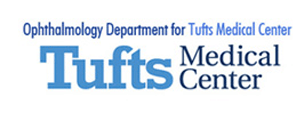
Cataracts are usually associated with older adults. But it may surprise you to learn how old a person is when their risk for cataracts becomes significant.
That age? It’s only 40 years old. The older you are, the more likely you are to develop cataracts, but you can actually get them at any age.
Certain conditions may increase your risk of developing cataracts at an earlier age. This is true along with certain lifestyle choices.
No, you can’t really be too young for cataracts. But you may be able to lower your risk for developing them at a young age. Keep reading to learn more!
Risk Factors
There are many factors that can increase your risk of developing cataracts. The main one is age.
If you’re 40 or older, you’re automatically at risk. But regardless of age, these factors are closely associated with cataracts:
- Tobacco use
- Obesity
- Excessive alcohol consumption
- UV damage to your eyes
- A family history of cataracts
- Diabetes
- Use of corticosteroid medication
- Eye trauma
If you exhibit any of these factors, you may develop cataracts earlier in life. It’s rare to develop them before you’re 40, but possible, especially if you’re in a high-risk category.
Reducing Your Risk
There’s no way to avoid all these risk factors. You can’t change your family history, and you may not even be able to help taking corticosteroid medication if you need it to treat a serious condition.
But you can practice good eye safety to prevent injury and trauma to your eyes. You can also be diligent about wearing sunglasses to protect your eyes from UV damage.
Other than that, the most important changes you can make to reduce your risk are pretty big. Quitting smoking can be extremely difficult, as can losing weight.
But if you start slow and work your way up, you can change your diet and gradually become more active. Keep in mind that even these big changes can’t prevent you from developing cataracts.
But they can reduce your risk and make it less likely you’ll develop them at a younger age. These lifestyle changes are also good for you in general, so adopting them benefits your general health!
Identifying Cataracts
If you do have cataracts, they may be hard to identify in the early stages. This is why regular eye exams are helpful in spotting them early so your doctor can monitor their progress. As they develop, you may be able to notice visual symptoms, including:
- Blurry vision
- Trouble seeing in low light
- Light sensitivity
- Increased glare
- Halos
- Double vision in one eye
- Decreased ability to see contrast
If you experience some of these symptoms, you should schedule an appointment with your eye doctor. If they identify the issue as cataracts, they may not recommend having cataract surgery right away.
Cataract surgery is an effective treatment for cataracts and removes them completely. But because cataracts can develop slowly over months or even years, doctors recommend having cataract surgery only when your cataracts begin to affect your quality of life. At that point, you can discuss the potential of cataract surgery with your doctor.
Concerned that it may be time to have cataract surgery? Schedule a cataract screening at New England Eye Center in Boston, MA today!




